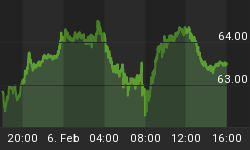To Westerners, China has always been a mystery. The huge population of very smart, hard-working people. The succession of unfamiliar, authoritarian governments. The sense that they're playing the long game while we're obsessed with quarterly reports - and that they're laughing at our naiveté and lack of historical sense. We don't get the Chinese, but we've always been impressed with them.
Never was this more true than in the past decade. While the developed world flailed around, trying to figure out how to pay its bills now that new debt no longer automatically translates into new paper wealth, China seemed to be the country that got it right. A dictatorship, sure, but a capitalist dictatorship, ordering its citizens around in the cause of economic development. Their numbers might be unverifiable, but one couldn't deny the reality of all those skyscrapers and roads and power plants.
But now it turns out that China was behaving just like us, albeit more secretively, borrowing like crazy and investing more-or-less randomly. And, like us, they're discovering that randomly investing other people's money carries some risks. Two long articles that cover China's plight in some detail were recently posted by Mike Shedlock and Automatic Earth.
In the meantime, here's the short version:
In 2008, when the West - the biggest market for Chinese goods - appeared to be imploding, China began using its vast foreign exchange reserves and borrowing power to build truly amazing numbers of skyscrapers, roads and airports, among many other things. At the same time, it encouraged the creation of a "shadow banking system" of local/regional development agencies and investment funds that could borrow and lend more-or-less off the books. The result of this stealth QE was even more new debt than the U.S., Europe and Japan were taking on, something like $15 trillion in five years.
Now a growing part of that debt is going bad and China is not sure how to fix it. They're bailing out some of the more serious insolvencies while trying to rein in the shadow banking sector. But it's not working. Bank lending soared in January, even while the list of potential problem borrowers lengthened. Apparently the coal companies are in especially bad shape.
So what does this mean for the rest of us? Since China was thought (rightly, as it turned out) to be one of the engines pulling the global financial system back from the abyss, how would a financial crisis there affect, say, the S&P 500 and Treasury bonds? The logical answer is that "risk on" would switch to "risk off" overnight, sending stocks down and Treasuries, as the last financial safe haven, way up.
Precious metals are a trickier call. China has been a huge buyer of gold, so presumably a crisis would lead it to buy less. On the other hand, if safe havens are back in style, then a suddenly-terrified world might more than make up for China's lower demand. Gold certainly looks better than growth stocks for the early part of such a crisis.
And then, of course, there's the question of how the Fed, ECB and Bank of Japan will react to China's problems spreading to the developing world. Almost certainly they'll double down on their current debt monetization policy (or in the case of the ECB, join that party). In the past this has sent the leveraged speculating community back into "risk on" -- which is why the world is in the current mess.
Someday, the markets will see such policies as the acts of desperation that they clearly are. This might be that time, or it might not. We'll only know in retrospect.
The previous articles in the "What Blows Up First?" series:















